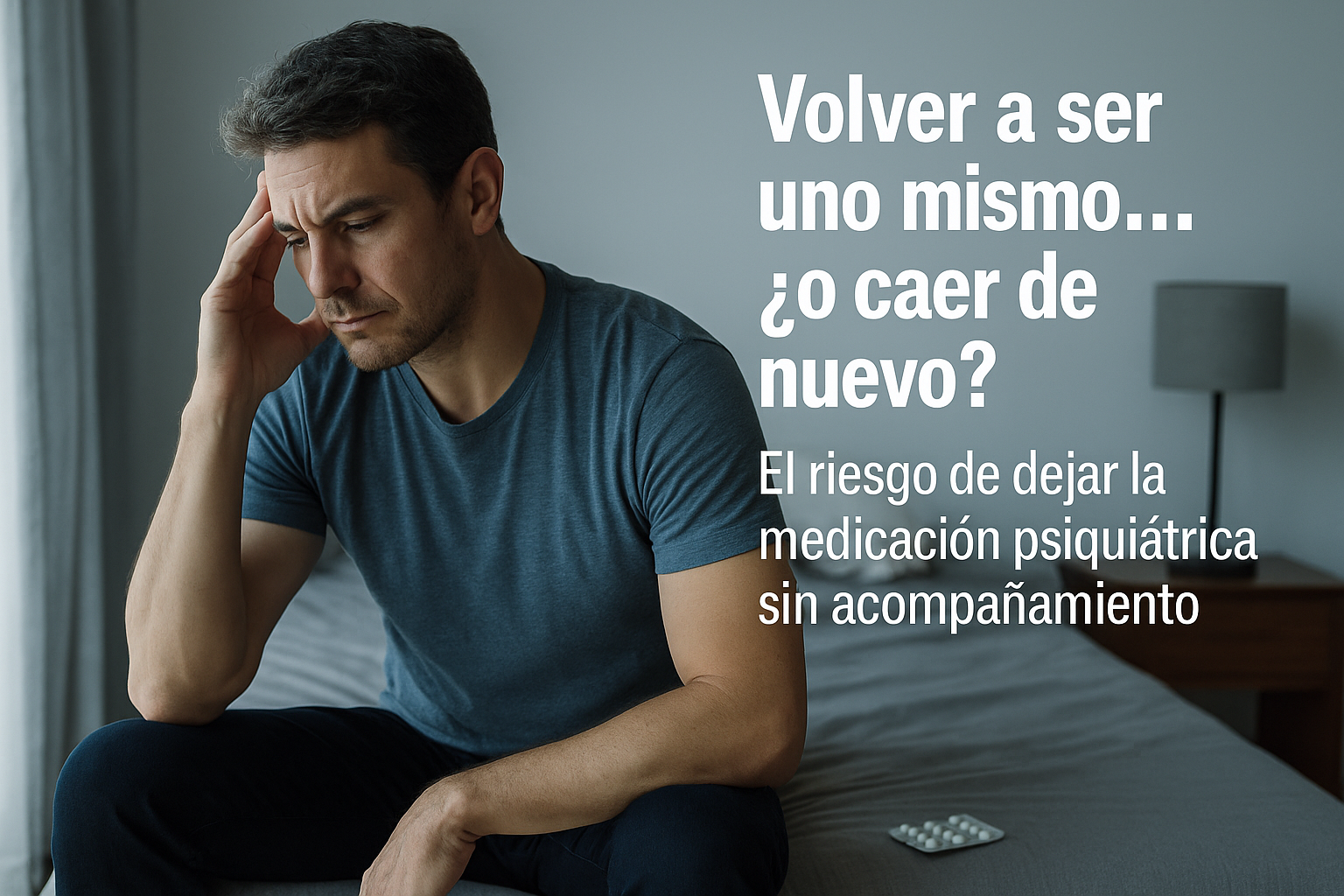What are the hidden risks when stopping psychiatric meds without a doctor’s support?
This essay explores the science, identity crisis, and cultural myths surrounding medication withdrawal.
The Temptation to Stop
In the public eye, stories often emerge of celebrities, influencers, or everyday people proclaiming: «I’ve stopped taking my meds — and I finally feel like myself again.» These statements resonate with many who long for autonomy, authenticity, and relief from the stigma of psychiatric medication. But they also obscure a deeper, riskier truth.
What happens when psychiatric medication is stopped without clinical guidance? What does «feeling like yourself» really mean? And what responsibilities come with sharing these personal decisions publicly?
When Feeling Better Becomes a Trap
It’s one of the most common and dangerous paradoxes in psychiatry: the patient begins to feel better — and attributes that improvement to being «cured,» rather than to the treatment itself.
The result? A sense of confidence that leads to abrupt medication cessation.
But psychiatric medications, especially antipsychotics, mood stabilizers, and antidepressants, often require slow, carefully monitored tapering. Sudden withdrawal can lead to:
- Rebound symptoms (often more intense than before)
- Severe mood swings or insomnia
- Psychotic breaks or suicidal ideation
- Loss of insight and treatment resistance
The mind doesn’t reset instantly. Neurotransmitters don’t regulate themselves on command. Stopping isn’t a switch — it’s a biochemical process.
The Dangerous Power of Public Declarations
When public figures declare they’ve stopped their meds, they may inspire others to do the same. But inspiration without context is perilous.
- The media amplifies emotionally charged narratives.
- People in fragile mental states may imitate without support.
- Public declarations can carry unintended consequences.
What’s missing in these stories is often what matters most: the clinical background, the risk assessment, the structured plan — or lack thereof.
The Illusion of Identity
“I feel like myself again.” But which self?
Was it the self in crisis? The self before diagnosis? The self that avoids painful memories?
Mental illness often disrupts identity. And treatment, when it works, stabilises it. The return of old emotions or unfiltered experiences can feel authentic, but may signal relapse.
Recovery doesn’t mean returning to who you were before. It means evolving into someone who can live with clarity, awareness, and continuity.
What Responsible Withdrawal Looks Like
There are safe, structured ways to stop psychiatric medication — but none involve doing it alone. A responsible path includes:
- Collaborative planning with a psychiatrist
- Gradual dose reduction over weeks or months
- Ongoing therapy and psychosocial support
- Monitoring of warning signs and fallback options
Autonomy in mental health doesn’t mean rejection of help. It means choosing the right supports at the right time.
What We Must Say Publicly
Mental health narratives matter. They shape culture, stigma, and behavior.
So when we share our stories — especially if we’re visible figures — we must:
- Avoid glamorizing abrupt withdrawal
- Emphasize professional support and gradual change
- Share the uncertainty and the risk, not just the relief
- Offer resources, not just revelations
Conclusion: Be Who You Are, Safely
There’s nothing wrong with wanting to reclaim your self. To live unmedicated. To feel whole. But there’s a difference between recovery and recklessness.
Let’s keep telling stories — but let them be responsible, grounded, and life-affirming.
Because health is not the absence of medication. It’s the presence of stability, connection, and freedom — with or without it.

